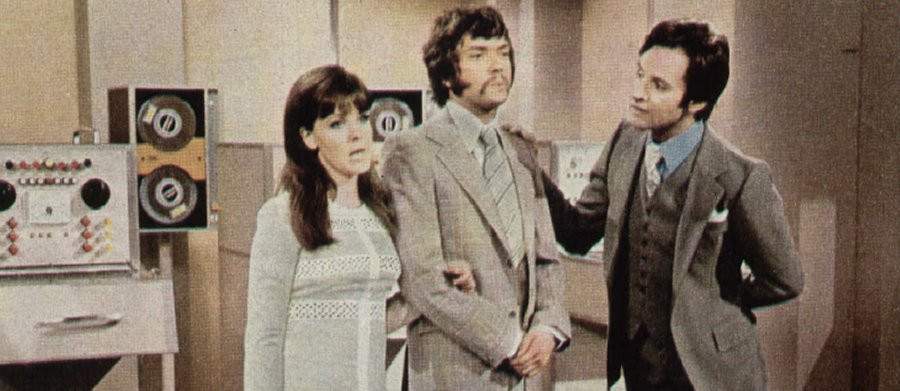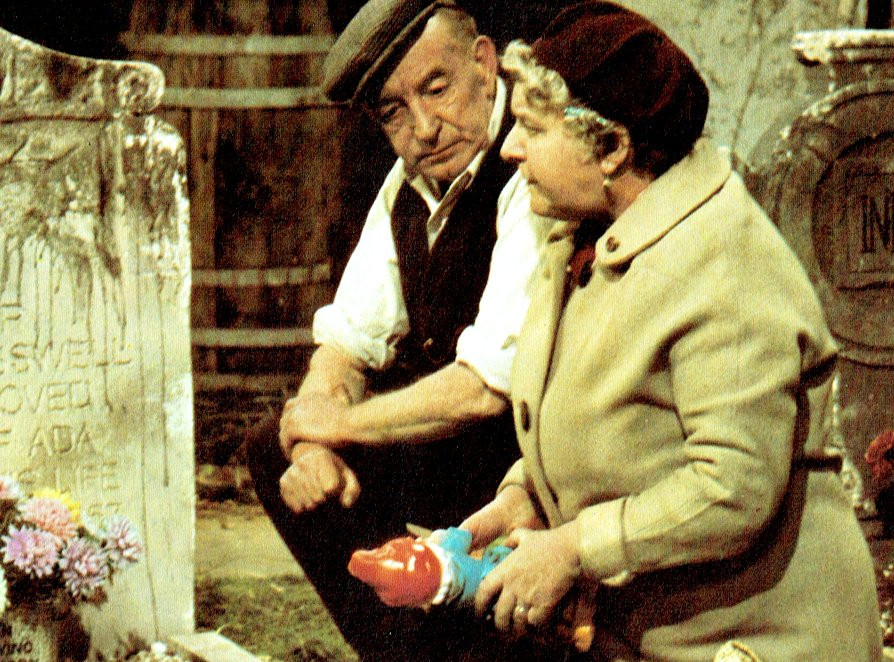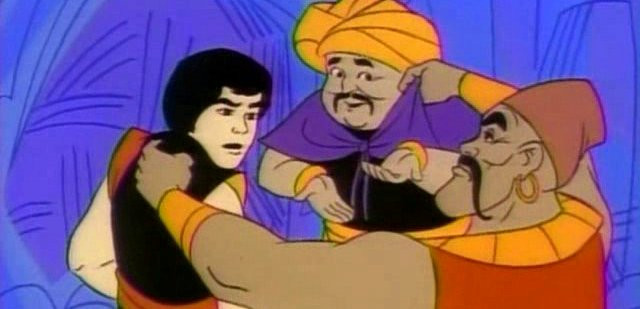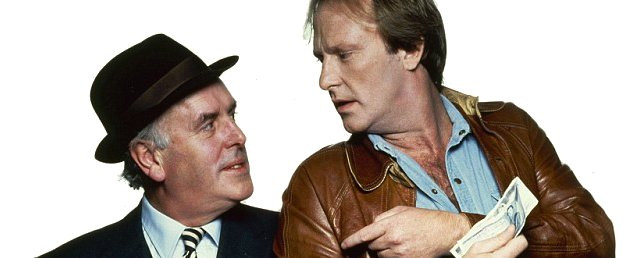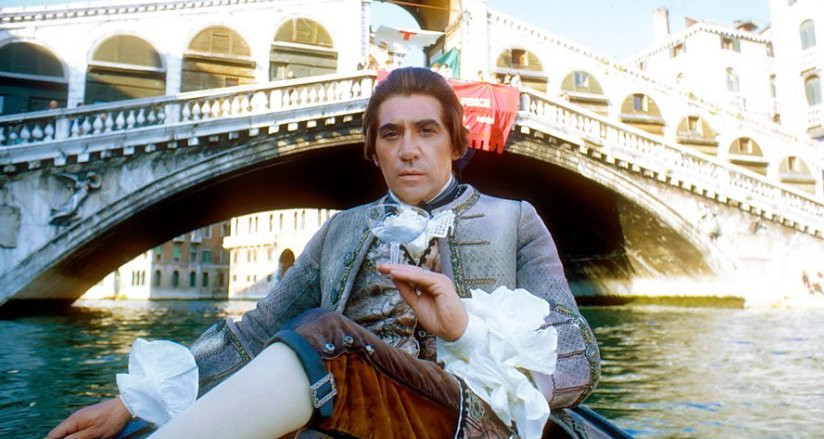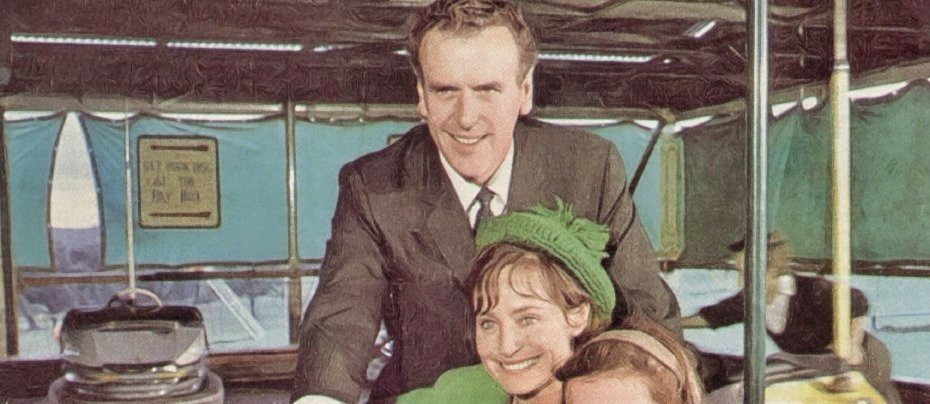
A Man of Our Times
1968 - United KingdomMax Osborne is a 40-year-old factory admin worker, married with two children and seemingly living a pretty normal, if unremarkable life. But he has secrets, and they are about to be revealed after a day that starts off so well, very quickly turns into a day that he will live to regret. A crisis erupts in his private life and a nasty shock awaits him at work.
Although he will be best remembered as Arthur Daley in the TV series Minder, George Cole was a character actor of considerable depth, and in A Man of Our Times he cast aside the light comedic roles that he had become closely associated with since his appearance as ‘Flash’ Harry in Blue Murder at St. Trinian’s in 1957.
The story opens with a tragedy. Wilfred Pickles as Max's father, steps drunkenly off a train before it has arrived at the station, and later dies of shock in hospital. A week later, Max arrives back from the funeral to find a totally unexpected strike on his hands at the factory where he is Personnel Manager.
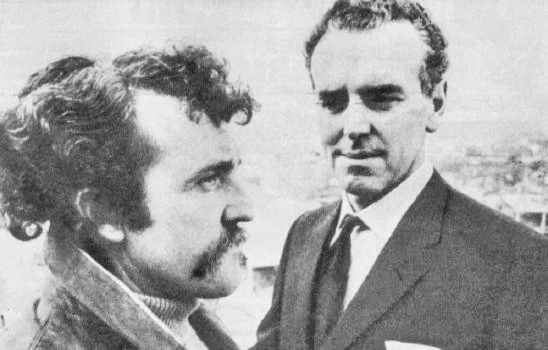
‘The strike at the factory was not so concerned with the complexities of human behaviour as with telling a good story, reflecting a bit of the contemporary industrial scene, and the result was only average. The bosses were reactionary and stubborn or heartless and over-confident, the workers were honest chaps struggling to protect themselves against the imagined evils of take-over. George Cole, between the two, emerged as a sort of hero, trusted by neither side and yet necessary to both. It was all a little hasty: the one thing we know about industrial disputes is that they are as long drawn out as is time wastingly possible. There were some marvellous shots of a factory yard filled with men in a genuine snowstorm. Clive Morton, Charles Tingwell and Frederick Jaeger as the bosses trying to speak above the angry workers, really looked insecure and out of their element, the snow rapidly covering their smart tailored overcoats and well- groomed heads. A bonus from above that director Gareth Davies certainly made the most of.’ - Ann Purser (The Stage – February 1968).
When the inevitable takeover goes ahead, Max, conscientious and good at his job but expendable despite his long friendship with David Soames, an old army friend and the son of the boss, who got Max the job at the factory originally, is dismissed by the new owners. Suddenly out of work, Max is left with no choice than to take a lower paid job. Feeling guilty, David offers Max a position as manager of a subsidiary firm in Perth, Australia, as consolation. But Max has a secret. He has been unfaithful to his wife and is still very much involved with ‘the other woman.’

As Max Osborne, a man who lives just sufficiently above his income, Cole won the plaudits of critics as a minor lady-killer. ‘He is by no means conventionally good looking and the story has not turned him into a hero. He has been mean, sneaky, selfish, bad-tempered. And yet by providing him with some very neat lines (and funny ones too) and by making the most of George Cole's everyday charm, Max has evolved into quite a fanciable character. He is no Paul Newman, but he grows on you.’ Wrote Marjorie Bilbow in The Stage. ‘…he has a face-saving courage but none of the decisiveness that would win the respect of his superiors. In short, he is a character that has been the central figure of many light comedies; and it is very much to the credit of George Cole that, with all his experience of comedy, he does not fall into the traps of playing for laughs or of overstressing the pathos in compensation.’

His schoolmistresses mistress, Muriel (Jennifer Wilson) thinks Max should accept the offer of the job in Australia and proposes that she and her daughter, Lucy (Zuleika Robson) go with him, but only on the condition that Max divorces his wife, Sally (Jean Harvey) and leave his children, Clare (Lucy Appleby) and Michael (Christopher Witty) behind.
Reviewing the first episode of Rediffusion's A Man of Our Times, The Stage newspaper (January 1967) said that the series ‘fulfilled the promise of the talented cast and the strong team of writer Julian Bond, director Michael Lindsay-Hogg, producer Richard Bates, and executive producer Stella Richman. Here is all the painstaking realism of detail that was to be found in ATV's The Plane Makers with its interplay between management and workers, but with the focus on a humbler soul than John Wilder.
I say that Max is a man of our times. But he would not be so if he were not surrounded by so many recognisable people of today. In this context I would mention particularly Diana Beevers as his loving but self-effacing secretary Gwen; Mary Hignett as Mrs Carr, the efficient but human secretary to the boss; Charles Tingwell, well-meaning but powerless as the boss's son David; and Clive Morton as the boss himself, authoritative, dignified, but inclined to bluster when he knows he is morally in the wrong.
Julian Bond's script is spare, but it has not been stripped of the small talk with which we fill anxious moments. The social chit chat between Max and his bank manager (Peter Barkworth) heightened the suspense of a scene for which we knew there could be only one outcome. Michael Lindsay-Hogg's direction ensured that the exchanges between the characters were always taken at the right pace without a nuance of meaning being lost and, with the help of sets designed by Frank Nerini, created the atmosphere of the small business so well that I almost smelt the sawdust and varnish.’
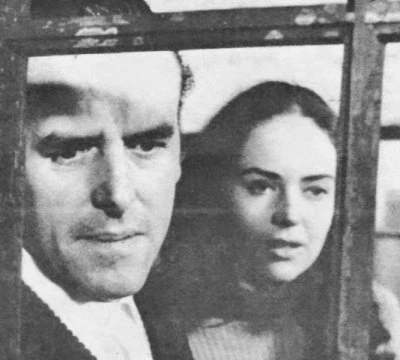
In February, critic Ann Purser wrote: ‘His is shown as a greyish life with new problems rising up as fast as solutions are found to old ones. He is on the whole a likeable man, but again neither baddie nor goodie. In other words, an ordinary contemporary man. This could be dull, the rich relation of soap opera, but the series has achieved much more than this in seeing behind the neat front gardens and latticed panes of suburbia, examining quite closely the complicated way the ordinary man ticks.’
Having failed to establish anything with either an old university girl friend or his wife, Max plans a trip to Calais with Muriel.
‘Jennifer Wilson as Muriel was nicer than most schoolmistresses, but to show that she, too, wouldn't do for Max, we had some intentional (I am sure) parallel drawing between her and old university girl friend (played by Isobel Dean). Max had the week before eaten an enchanted meal with Isobel till the waiters put the chairs on the tables, and [afterwards] they romped through a deserted winter seaside pier. They had dropped pennies in slots with complete togetherness. It had all been magic compatible fun, but it hadn't lasted. With Jennifer, a similar chilly walk round Calais night life had the spark of a damp squib. Same penny-in-the-slot machines but no compatibility, dreadful cafe that they couldn't leave fast enough. Jennifer dropped the pennies, found it unbearable, wanted to get back to bed. She got the proposal, but too late. The women's magazine solution is not for Max.’ – The Stage review 28 March 1968.
A Man of Our Times ran for thirteen episodes from the first week of January 1968. Unfortunately, of these thirteen, five are missing presumed wiped.
Julian Bond who created A Man of Our Times is credited as co-creator of Police Surgeon with Sydney Newman, although the idea of Police Surgeon came from Bond whilst working on ITV’s first hour-long series Probation Officer, a ‘docudrama’ (for which he was also credited as co-creator) that focused on the work of the men and women charged with the welfare of juvenile delinquents and criminals and based on real court cases. Bond had written his first television script in 1957 for an episode of Shadow Squad.
Other well-name names and faces who also appeared in A Man of Our Times included Norman Rossington, Gabrielle Drake, Thorley Walters, Michael Sheard, Garfield Morgan and Carmen Munroe.
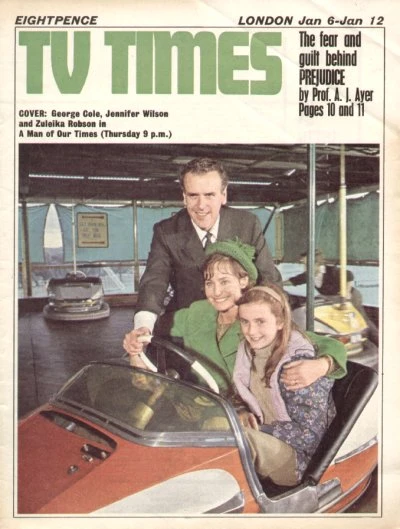
"Max Osborne has been the best acting role I have ever had but also the most exhausting," said George Cole in 1968. "There is a lot of emotional strain involved in playing a complicated character like Max. The part was very perceptively written by Julian Bond and there was a wonderful cast supporting me, but I don't think I would have ever got through it if I had not had Penny and the children to go home to." His wife, actress Penny Morrell, gave up her career the previous year to marry George Cole and look after the children of his first marriage (she made her television return in a 1985 edition of Minder). Following A Man of Our Times Cole said he intended to spend his immediate future "doing nothing at home with my family and the dog, two cats, three fish and one mouse." It was another nine years before he returned to serialised television.
Seen this show? How do you rate it?
Seen this show? How do you rate it?
Published on December 15th, 2022. Written by Marc Saul for Television Heaven.




